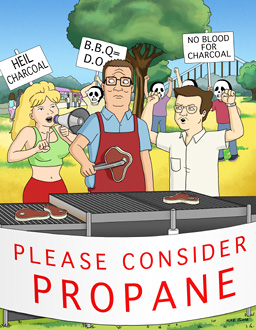Monday's Taiwan News featured an editorial (Taiwan is not Georgia) in which it discussed two articles, Georgia's Lessons for Taiwan (from the Far Eastern Economic Review) and From Georgia to Taiwan (from The Wall Street Journal Asia). The Taiwan News sums up the themes of the two opinion pieces:
According to these two heavyweight articles, the commonality is that ambiguous messages of support sent by the Bush administration led [Georgian President Mikhail] Saakashvili and Taiwan's former president Chen Shui-bian to take U.S. protection for granted and to perceive Bush's support as equal to U.S. backing for their "pursuit" of independence regardless of possible confrontations between the U.S. and Russia or between the U.S. and the PRC in the case of Taiwan.
Or, to put it more bluntly, Taiwan over the past 8 years was provoking China just as Georgia provoked Russia; and so in the interests of preventing a similar Sino-Taiwanese conflict, the reduction of American support for Taiwan was wise and just and proper.
With this the Taiwan News took issue. Admitting that Saakashvili unnecessarily provoked Russia, the editors forcefully denied that Taiwan had done the same to China:
What these pundits see as "provocative" were the moves made by Chen and the DPP government to deepen Taiwan's democracy for the sake of improving domestic governance, to foster a stronger sense of Taiwan national identity and citizenship, and to promote the participation of "Democratic Taiwan" in the world community.
In contrast to Saakashvili's invasion, Chen's actions were not aimed to "pursue" independence but to defend Taiwan's actually existing independence and democracy from the threat posed by an authoritarian power. Instead, it has been the PRC which has posed a clear and present military threat against both Taiwan and regional peace by engaging in a massive build-up of over 1,000 ballistic missiles and other offensive forces during the past 15 years and by relentless pushing to isolate Taiwan internationally and achieve annexation through intimidation combined with economic integration.
The only fly in the ointment is that everyone here is proceeding from false assumptions. Jeffrey Bader and Douglas Paal from the Far Eastern Economic Review. Richard Bush and Kenneth Lieberthal from the Wall Street Journal Asia. And last but not least, the Taiwan News.
They're all mistaken because they completely misunderstand how the War of 8/8/08 began. And if someone misunderstands the origins of that war, then any "lessons" they draw and attempt to apply to Taiwan immediately become suspect.
From independent journalist Michael J. Totten:
Virtually everyone believes Georgian President Mikheil Saakashvili foolishly provoked a Russian invasion on August 7, 2008, when he sent troops into the breakaway district of South Ossetia. “The warfare began Aug. 7 when Georgia launched a barrage targeting South Ossetia,” the Associated Press reported [several weekends ago] in typical fashion.
Virtually everyone is wrong. Georgia didn't start it on August 7, nor on any other date. The South Ossetian militia started it on August 6 when its fighters fired on Georgian peacekeepers and Georgian villages with weapons banned by the agreement hammered out between the two sides in 1994. At the same time, the Russian military sent its invasion force bearing down on Georgia from the north side of the Caucasus Mountains on the Russian side of the border through the Roki tunnel and into Georgia. This happened before Saakashvili sent additional troops to South Ossetia and allegedly started the war. [emphasis added]
[…]
“[On the] 3rd of August, [South Ossetian president Eduard] Kokoity announces women and children should leave [as a prelude to hostilities]. As it later turned out, he made all the civilians leave who were not fighting or did not have fighting capabilities. On the same day, irregulars – Ingush, Chechen, Ossetians, and Cossacks – start coming in and spreading out into the countryside but don't do anything. They just sit and wait. On the 6th of August the shelling intensifies from Ossetian positions. And for the first time since the war finished in 1992, they are using 120mm guns.”
"That was the formal start of the war . . . Because of the peace treaty they had, nobody was allowed to have guns bigger than 80 mm." [emphasis added]
[…]
"On the evening of the 7th, the Ossetians launch an all-out barrage focused on Georgian villages, not on Georgian positions . . . That evening, the [Georgian] president gets information that a large Russian column is on the move. Later that evening, somebody sees those vehicles emerging from the Roki tunnel (into Georgia from Russia) . . . "
"The first thing [the Georgians] did . . . they tried to get through (South Ossetian capital) Tskhinvali, and that's when everybody says Saakashvili started the war. [Except] it wasn't about taking Ossetia back, it was about fighting their way through the town to get onto that road to slow the Russian advance."
Maybe the only lesson here is that Taiwan can't afford to lose the propaganda war as Georgia did. Russia's Ossetian catspaws started the war with Georgia, but Georgia was the one saddled with the blame. It was too psychologically challenging for the world to consider the alternative: that the Russian empire was again on the march in the near abroad, and the West now had to strengthen its security arrangements.
So instead, Olympic viewers contented themselves with platitudes about not tugging on Superman's cape. Then went back to watching lip-synching 6 year-olds and lots of pretty, fake, fireworks.
Postscript: To be fair, Michael J. Totten does quote someone as saying Georgia "provoked" Russia by trying to join NATO. Of course, other former Eastern-bloc countries are equally guilty of similar "provocations", including Poland, Hungary, the Czech Republic and the Baltic states.
What Russia characterizes as provocations, I see as legitimate attempts by former satellite nations to break orbit from a tyrannical neighbor.
UPDATE (Dec 3/08): Saakashvili makes his case at the Wall Street Journal.
